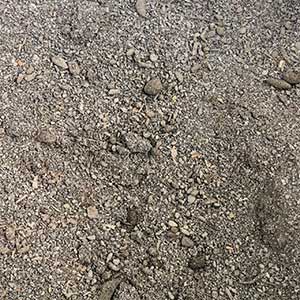
Natural mineral fertilisers, rock minerals and rock dust are all the same thing, but what are they and how do they work?
You may have heard of Azomite, a natural rock with a wide range of minerals and trace elements which are beneficial for plant health. However this is only one of the rock dust products that are beneficial in the garden. Along with Biochar, these are one of the newer fertilisers and soil improvers on the market.
Different rocks contain different minerals and trace elements, and they have been used in fertilisers for many years,
Granite is a classic example, it contains large amounts of potassium. Basalt contains a wider range , including iron, magnesium, potassium and phosphorus.
Generally these rock are crushed to a fine powder, ready for use in a range of garden applications.
A range of fertilisers are now available, formulated from different rock types for specific purposes. These are proving to be very successful, but how do you use ‘rock dust’ in the garden ?
How to use ‘Rock dust’ in the garden
The first thing to consider is that even when finely ground, rock dust tends to keep its minerals ‘locked up’. You need a healthy soil with good microbial activity to release the minerals.
Some gardeners add rock dust to compost bins to speed up this process. A handful of rock dust every now and then in the compost heap world well. You can also add it to finished compost or vermicast.
If you soil is healthy, you can add it directly, a good time to do this is just before you add mulch.
Different Types of Rock Dust
As the science behind rock minerals for the garden becomes more readily understood, the products produced develop and change.
Today you can find specially formulated rock mineral (rock dust) fertilisers for different garden applications including
- Soil Conditioners and Clay breakers
- General purpose plant foods
- Vegetable garden mixes
- Flowers garden mixes
- Fruit Trees
- Lawns
These are more advanced products and can be used more often to great effect, some of these are applied in smaller quantities but more often.
How much do you use and how often ?
If you were using a general ‘rock dust’ product, for around 10 sq metres (around 100 sq ft) you would use about 4.5kg (10 pounds), however different rate will apply for different products.
We would apply this amount every 3 – 4 years, over fertilisation is a waste of money and can do harm to the soil. It will take time for the rock dust to break down and release the minerals so be patient.
Are Rockdust Fertilisers a Vegan Friendly Fertiliser!
Generally any fertiliser that may be contaminated with blood or bone, or other animal by products would not be regarded as vegan friendly. So animal manures would not be be considered as suited to grow true vegan food. This is another area where natural rock dust fertilisers come to the forefront.
